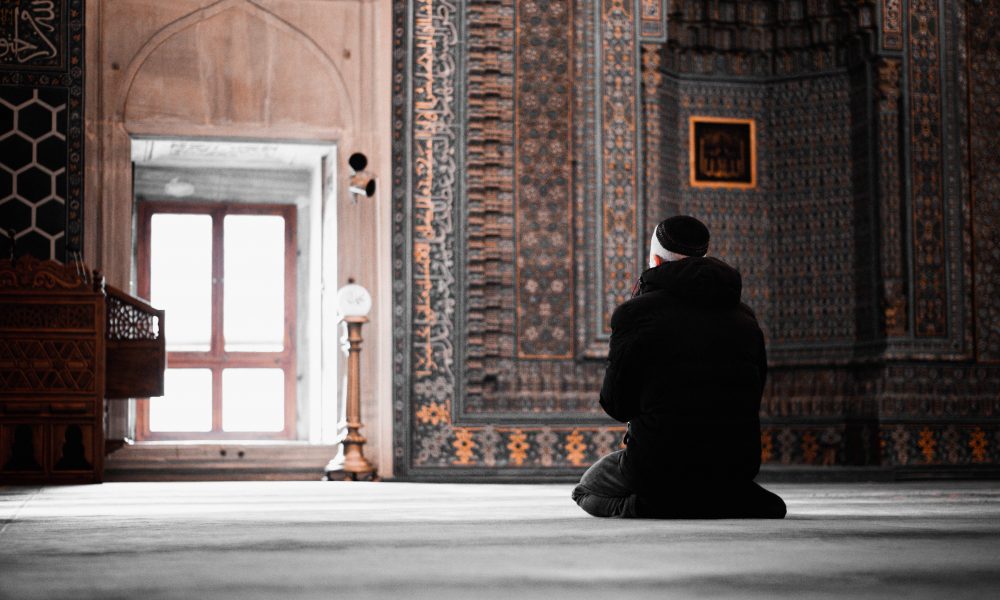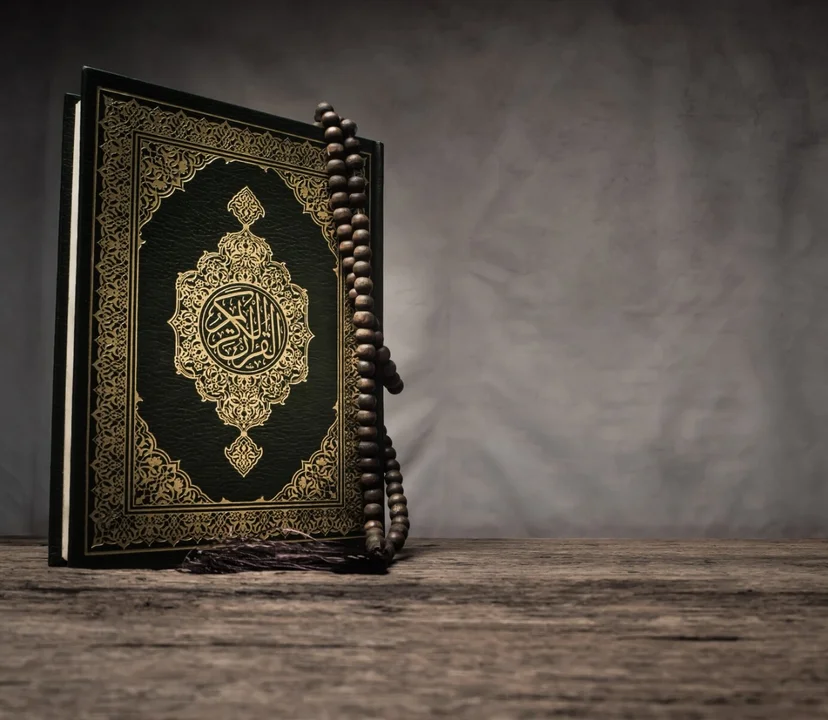Hey there, friend. You ever find yourself in a situation where someone says "Allah y barék" and you're left scratching your head thinking, "What do I say to that?" Well, you're not alone. This phrase is deeply rooted in cultural and religious practices, but many people outside of these communities might not know how to respond. Let's break it down, shall we? On répond quoi à Allah y barék is the question on everyone's mind, and today we’re diving deep into it. So grab a cup of coffee, or maybe some mint tea, and let’s get started.
This phrase is more than just words—it’s a reflection of faith, respect, and community. If you’re trying to navigate cross-cultural interactions or simply want to show respect when you hear this phrase, you’re in the right place. Understanding the meaning behind "Allah y barék" and knowing how to respond appropriately is key to building meaningful connections with others. Stick around, because this is gonna be insightful.
Now, before we dive deeper, let me just say this: being respectful in any cultural exchange is crucial. Whether you’re Muslim or not, understanding phrases like "Allah y barék" can go a long way in fostering mutual respect and understanding. So, without further ado, let’s explore what this phrase means, why it’s important, and how you can respond in a way that shows you value the traditions of others.
Read also:Are Jen And Ryan Still Together Rhoc
What Does “Allah Y Barék” Mean?
Alright, let’s start with the basics. "Allah y barék" is an Arabic phrase that roughly translates to "May God bless you" or "May God increase your blessings." It’s often used as a form of blessing or well-wishing, typically in response to something good happening, like receiving a gift, achieving success, or even when someone sneezes. In essence, it’s a way of acknowledging God’s role in life’s blessings.
Breaking Down the Phrase
To fully understand "Allah y barék," let’s break it down:
- Allah: This refers to God in Islam, but it’s also a term used by Arabic-speaking Christians and others.
- Y barék: This means "He blesses" or "He increases blessings." It’s a wish for abundance and positivity.
So when someone says "Allah y barék," they’re essentially asking for divine blessings for you or the situation at hand. Cool, right? It’s like saying "Bless you" but with a deeper spiritual undertone.
Why Is “Allah Y Barék” Important?
This phrase holds significant cultural and religious importance. In many Muslim communities, it’s a way of expressing gratitude and acknowledging the presence of God in everyday life. It’s not just a casual phrase—it’s a reflection of faith and community values. When you hear "Allah y barék," it’s an invitation to participate in a moment of gratitude and connection.
Context Matters
Understanding the context in which "Allah y barék" is used is crucial. Here are a few scenarios where you might hear it:
- When someone sneezes. In many cultures, sneezing is seen as a moment where divine protection is needed, so saying "Allah y barék" is a way of offering blessings.
- During celebrations or achievements. If someone achieves something great, like graduating or getting a new job, you might hear this phrase as a way of wishing them continued success.
- When receiving gifts. It’s a polite and respectful way of showing appreciation for the thoughtfulness of the giver.
See? It’s all about spreading positivity and acknowledging the good things in life.
Read also:Avery Leigh Leak
How Should You Respond to “Allah Y Barék”?
Now, here’s the million-dollar question: on répond quoi à Allah y barék? There are a few appropriate ways to respond, depending on the context and your level of familiarity with the phrase. Let’s explore some options:
Option 1: Return the Blessing
A common and respectful response is to return the blessing by saying "Wa énta/allik" (which means "And upon you" or "The same to you"). This acknowledges the blessing and extends it back to the person who offered it. It’s a simple way to show mutual respect and gratitude.
Option 2: Express Gratitude
Another option is to simply say "Shukran" (thank you) or "Merci" if you’re in a French-speaking context. This shows appreciation for the blessing and is a polite way to respond. You can also add "Al hamdulillah" (praise be to God) if you’re familiar with the phrase.
Option 3: Smile and Nod
If you’re not sure what to say, sometimes a smile and a nod can go a long way. Non-verbal communication is powerful, and showing that you appreciate the gesture can be just as meaningful as a verbal response.
Common Misconceptions About “Allah Y Barék”
There are a few misconceptions about this phrase that are worth clearing up:
- It’s not exclusive to Muslims. While it’s commonly used in Muslim communities, anyone can say it as a way of offering blessings.
- It’s not a religious obligation. While it has religious roots, saying "Allah y barék" is more of a cultural tradition than a religious requirement.
- It’s not about imposing beliefs. Rather, it’s about sharing positivity and good wishes with others.
Understanding these nuances can help you navigate conversations more comfortably and respectfully.
Cultural Significance of “Allah Y Barék”
Let’s take a moment to appreciate the cultural significance of this phrase. In many Arab and Muslim cultures, community and connection are highly valued. Saying "Allah y barék" is a way of fostering those connections and expressing gratitude for the good things in life. It’s a reminder that we’re all part of something bigger than ourselves.
Building Bridges Through Language
Learning phrases like "Allah y barék" and knowing how to respond can help bridge cultural gaps and foster understanding. It shows that you respect and value the traditions of others, even if you don’t share the same beliefs. This kind of cultural exchange is essential in today’s globalized world.
Practical Tips for Responding to “Allah Y Barék”
Here are a few practical tips to help you respond confidently:
- Listen carefully to the context in which the phrase is used.
- Practice saying the response a few times so you feel comfortable.
- Don’t be afraid to ask questions if you’re unsure. Most people will appreciate your curiosity and willingness to learn.
Remember, the goal is to show respect and build connections, so don’t stress too much about getting it perfect. People will appreciate your effort.
Conclusion: Embracing Cultural Exchange
Alright, we’ve covered a lot of ground here. To recap, "Allah y barék" is a beautiful phrase that reflects faith, gratitude, and community. Knowing on répond quoi à Allah y barék is all about showing respect and building connections. Whether you choose to return the blessing, express gratitude, or simply smile and nod, your response can make a difference in how people perceive you.
So, the next time someone says "Allah y barék" to you, take a moment to appreciate the gesture and respond in a way that shows you value their traditions. And remember, learning about different cultures is a journey, not a destination. Keep exploring, keep asking questions, and most importantly, keep being open to new experiences.
Now it’s your turn. Leave a comment below and let me know what you think. Have you ever heard this phrase before? How did you respond? Share your thoughts and let’s keep the conversation going!
Daftar Isi
- What Does “Allah Y Barék” Mean?
- Why Is “Allah Y Barék” Important?
- How Should You Respond to “Allah Y Barék”?
- Common Misconceptions About “Allah Y Barék”
- Cultural Significance of “Allah Y Barék”
- Practical Tips for Responding to “Allah Y Barék”
- Conclusion: Embracing Cultural Exchange


